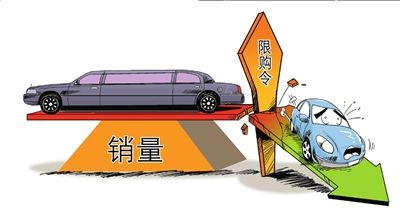 Status of purchase restriction
Status of purchase restriction On December 23, 2010, Beijing officially announced the "Interim Regulations on the Control of the Number of Small Passenger Cars in Beijing", becoming the first city in China to issue an automobile purchase restriction order. There are two aspects of the regulations: one is to implement annual total control; the other is to study and formulate traffic congestion charging plans. The main points are summarized as follows:
1. In 2011, the total amount of minibuses was 240,000 (an average of 20,000 per month) and individuals accounted for 88%. On the 26th of each month, free-wheeling was used to allocate vehicle indicators.
The foreigners in Beijing need to pay for proof of Beijing social security and individual taxes for more than five consecutive years. Residents of Hong Kong, Macao, Taiwan, overseas Chinese and foreign nationals need only one year of residence proof. In addition, foreign licenses will be banned from entering the Fifth Ring Road (inclusive) during peak traffic hours.
3. Will study and formulate key congested road sections or regional traffic congestion charging plans and implement them at the right place.
4. There is no need for a shake number to update the indicator. Apply directly to update the indicator.
At 2100 on June 30, 2012, Guangzhou announced the quota management of small and medium-sized passenger cars. According to the automobile purchase restriction policy, during the one-year trial period, the Guangzhou city’s medium and small passenger cars will have an increase quota of 120,000 vehicles, and will be configured according to 10,000 vehicles per month. According to market statistics, the annual increase in the number of cars in Guangzhou in recent years is about 300,000.
Urban road congestion is an inevitable problem to be solved during the development of the automobile society. Is this car purchase restriction a good solution? Let us take a look at the opinions of experts from all over the country.
Yes: Restrictions can be effective for a period of time
Beijing is the capital, but due to serious traffic jams, it was dubbed the "first block." In 2008, Beijing hosted the Olympic Games. In order to ensure smooth traffic, Beijing has implemented more than one month of single and double number limit measures to ease traffic congestion. The Asian Games to be held in Guangzhou will also begin to implement the single and double number limit.
After the Olympic Games, Beijing continued to implement restrictions on movements, instead of opening one day each week. The initial results were good, but the car couldn't stand to grow too fast. Now, even if hundreds of thousands of cars cannot get on the road every day, traffic congestion is still increasing.
Beijing has also increased parking fees in urban areas, but the effect does not seem obvious.
Some international metropolitan car ownership is even higher than Beijing, but traffic congestion is not serious. There are few ways to drive to and from Tokyo. One is that there is no parking at all, and the other is that public transportation is well developed. The urban areas in Beijing are getting bigger and bigger, and buses can't keep up. Many people have to buy a car to drive to work.
In the short term, it seems unlikely that Beijing's public transportation will be improved. The biggest possibility is to limit the purchase and use of cars.
Opposition: Restrictions are damages
First of all: However, from a digital point of view, especially in view of the number of motor vehicles owned by the country's 1,000 people, China is still far lower than the developed countries. This policy of “limitation†has been the cause of China’s automobile development. One profit.
Second, this kind of "limited-edition" argument completely ignores the causality and the complexity of China's auto consumption. At present, first-tier cities including Beijing (including some economically developed second-tier cities) have serious inconsistencies in road congestion. However, it should be noted that the lack of foresight in urban construction has led to this problem. .
Again, we must see that if we recognize the legality of “private property rightsâ€, then any act of restricting the purchase of cars will be inconsistent with law in a deep sense. The spending of Chinese auto consumers on vehicles (especially unreasonable or even illegal expenditures) is much higher than that of developed countries.
Governance blockage: refer to foreign successful methods
New York: Effective Traffic Jams for Intelligent Transportation
Los Angeles: Developing Low-Cost Public Transportation Systems
Paris: Long-term bus priority
London: Taxes required to enter the city center
Lisbon: Traffic to the city center is subject to congestion
Stockholm: Full Covered Rental Bicycle System
Hong Kong: Improve Public Transport and Plan Traffic Construction Properly
Tokyo: Three-dimensional traffic covers the city
Seoul: Economic Lever to Relieve Traffic Difficulties
Singapore: Urban fees and car purchases must be bought
Scuba Diving Wetsuits,Scuba Diving Dry Suit,Front Zipper Diving Wetsuit,Front Zipper Diving Suit
Atenovo Garments(Yangzhou) Co.,Ltd. , https://www.neoklo.com